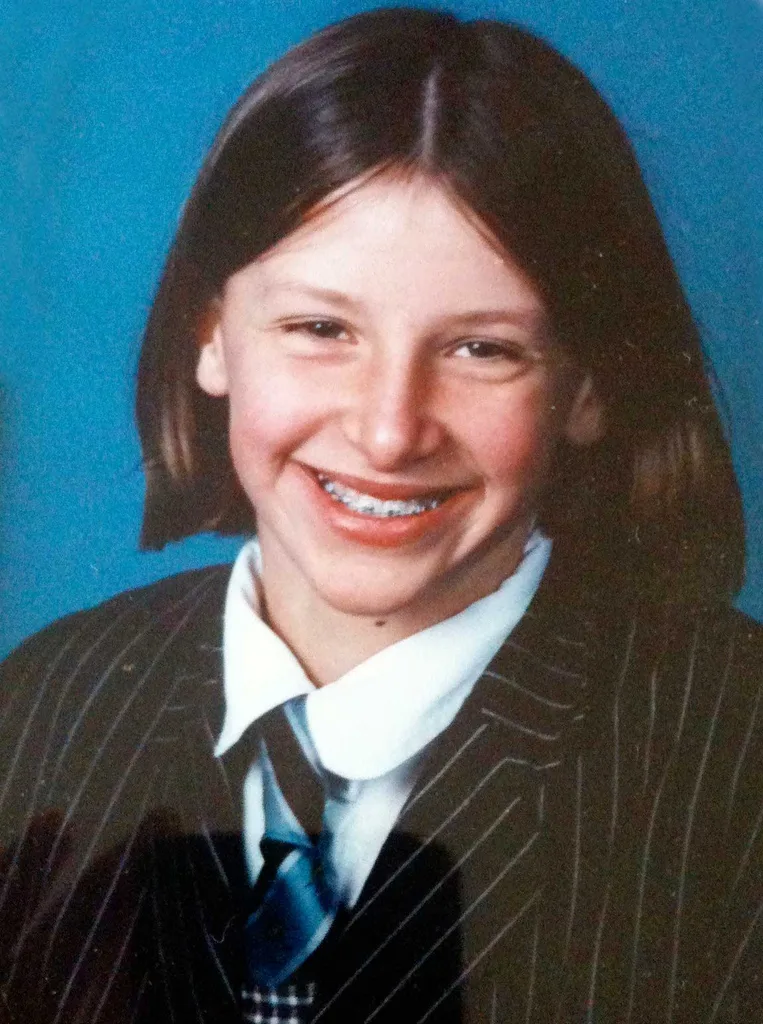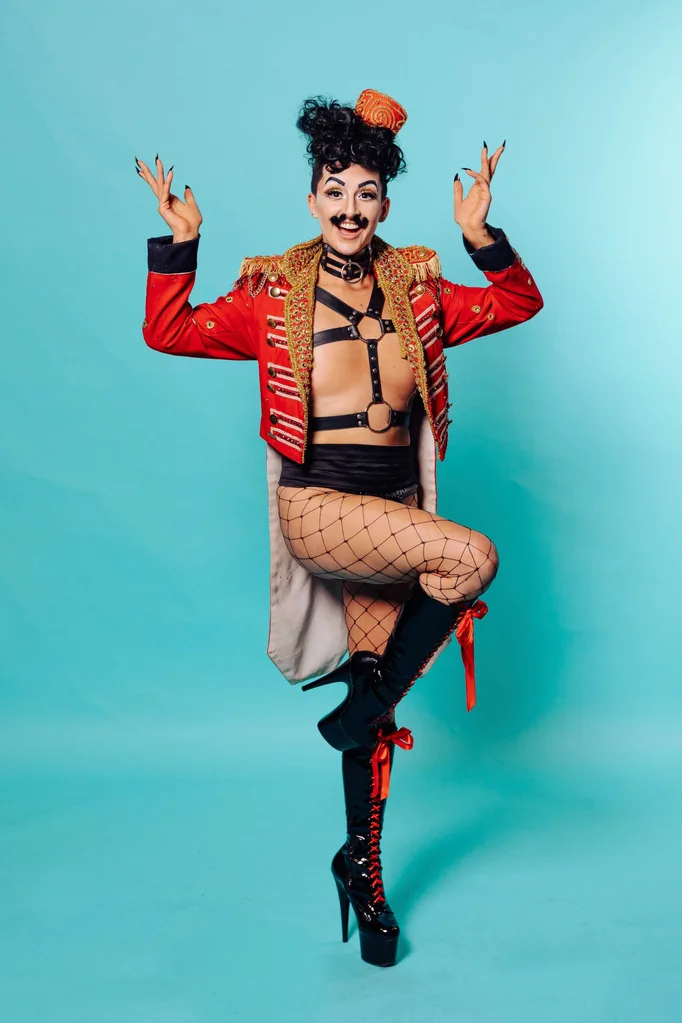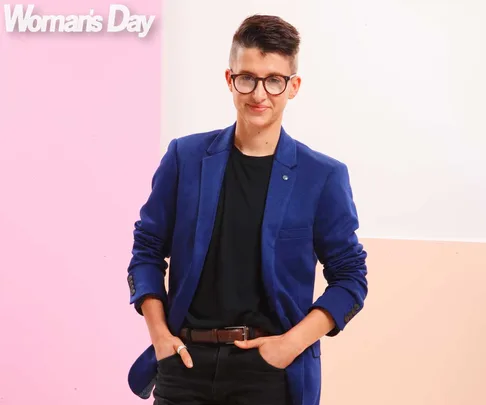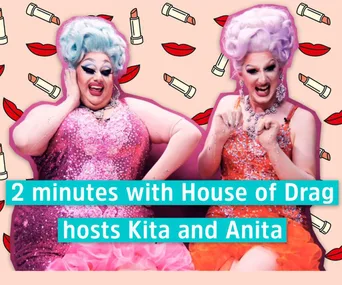When Hugo Grrrl walks into a room or steps on stage with sparkling eyelids and spiralling facial hair, he’s confident and comedic. That’s what fans love about the brazen Wellington drag king, a shining star on New Zealand’s LGBTI scene and favourite on TVNZ 2 show House of Drag.
He took out the competition this week, beating Leidy Lei, Lola Blades and Hugo Grrrl lip-sync battle to be crowned the very first House of Drag winner.
But beneath the dashing costumes is a quieter persona, George, the transgender male who battled years of unhappiness and substance abuse. “Something was off since I was a kid,” tells Christchurch-raised George, who was born female and is now the first drag king on Kiwi TV screens.
“Stuff started getting really jarring around puberty and the process filled me with absolute dread. I’ve always been a little masculine, but I was trying so hard to be feminine, which resulted in a lot of confusion and anger.”
By the time he was a young adult living in Wellington, he’d quit university to work in a bar, drinking heavily to “squash some very big unhappy feelings”.
“I was miserable, abusing alcohol because I was very uncomfortable with who I was,” explains George, who came out as gay at 19, hoping the revelation would bring him peace. Only it didn’t.

It’s been a long journey from confused schoolgirl (pictured, aged 11) to becoming the glamorous Hugo Grrrl.
“I actually started dressing super-femme. I’m talking dresses, lipstick and heels every day. It came from a place of internalised homophobia because I was like, ‘I’m not a gross dyke – I’m a pretty dyke,’ which was a coping mechanism for dealing with so much shame.”
Five years later, George started Naked Girls Reading, a theatre show focused on body positivity.
“It’s exactly how it sounds – naked women reading literature aloud on stage. I was surrounded by beautiful women who were stout and comfortable in their own bodies, which was so radical for me.”
Hoping to find similar confidence as a female, George read books about self-love and body positivity. “But it wasn’t working and that’s when I realised something bigger was at play.”
Suddenly, something snapped. “I started dressing more masculine, in pants and button-up tops, and binding my chest.” Then George tried drag.
“I fooled around in front of my mirror with this strange clown figure and the character of Hugo Grrrl fell out of me.”
For the first time, George saw something in the mirror he liked. “I had a feeling of joy wearing drag.”
Experimenting with hair and costumes, George mastered the art of bold stage make-up that balanced femininity with masculinity. “It gave me an avenue to have fun with gender, whereas I found dressing masculine in real life deeply scary,” he tells.
“I’m a camp man! I think that’s why it took me so long to work it all out.”

Now, when George dresses as his alter ego to host comedic burlesque-style drag shows across the country, he feels glamorous.
“I feel pretty, which is really profound, but it is how dressing up should be. Everyone deserves to present in a way that makes them feel powerful and awesome.”
George also gave up alcohol. “I need to be present and honest with myself. When I came out trans, it was possible to think about stopping drinking because I was much happier in my life.”
He admits he’s still uncomfortable with parts of his body, which means he doesn’t have a partner. “As I was coming out, I found it really difficult to date, not because the world hasn’t been nice to me – I’m very lucky – but it’s a self-perception thing. Self-love is hard, but I’m working on it.”
George says identifying as transgender was the best thing for his happiness, as well as his career.
“I want others to know that what seems like the scariest thing in the whole world is actually going to be fine. If I’d seen someone like me on TV as a younger person, I’d have come out 10 years earlier.”


